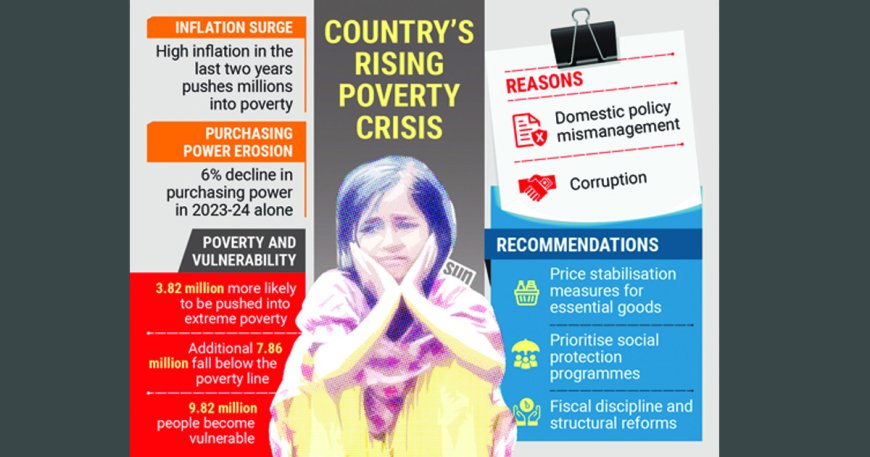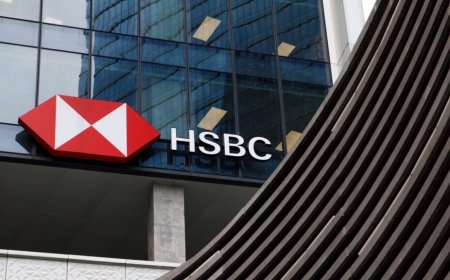Rising inflation drives 17.8 million Bangladeshis to the edge of poverty
Between 2022 and 2024, poor management and corruption pushed an additional 7.86 million people into poverty, according to the RAPID think tank.

Prolonged high inflation over the past two years has pushed approximately 17.8 million Bangladeshis to the brink of poverty, according to Research and Policy Integration for Development (RAPID).
RAPID reports that domestic policy mismanagement and corruption have been significant factors in this economic strain, leading to a sharp decline in purchasing power and worsening poverty and vulnerability. In 2023-24 alone, inflation caused purchasing power to drop by over 6%.
Between 2022 and 2024, the extreme poverty rate rose from 5.65% to 7.95%, adding 3.82 million people to this category. Additionally, 7.86 million individuals fell below the poverty line, increasing the poverty rate from 18.22% to 22.95%. Economic vulnerability also worsened, with 9.82 million more people classified as at risk, raising the rate from 33.9% to 39.8%.
At a RAPID event, Dr. Md Deen Islam, research director at RAPID and associate professor of economics at Dhaka University, highlighted domestic policy failures as the main driver of inflation, rather than global energy and food price hikes.
“Inflation in Bangladesh has remained above 10% for the past two years, while wages have failed to keep up with rising costs,” Dr. Islam explained. He recommended that monetary policy focus on long-term trends and core inflation, excluding volatile items like food and energy.
Dr. Islam also proposed forming a joint working group to stabilize essential food prices by monitoring production, forecasting shortages, and proactively managing imports to prevent price surges and hoarding.
Shafiqul Alam, Press Secretary to the Chief Adviser of the interim government, noted that previous inflation data under the Awami League-led government had been manipulated to appear lower than actual rates. “Accurate data now show inflation at 13%, reflecting the true scale of the crisis,” he said.
RAPID Executive Director M. Abu Eusuf emphasized the importance of fiscal discipline and more effective budget implementation. Weak budget execution and unrealistic revenue targets have undermined fiscal credibility, he argued.
Eusuf suggested reallocating just 2.3% of Annual Development Programme (ADP) spending to double funding for food-based social protection programmes. He also called for higher social protection allocations in the next budget and better public debt management through prudent fiscal measures.
Additionally, Eusuf stressed the urgency of tax reforms and realistic revenue targets to stabilize the economy.
RAPID Chairman Dr. M. A. Razzak warned of the challenges Bangladesh faces as it approaches graduation from the Least Developed Countries (LDC) category in November 2026. He cautioned that macroeconomic instability, a reserve crisis, and policy uncertainty could deter foreign direct investment (FDI).
“Following LDC graduation, Bangladesh will face a 20% increase in export duties to key markets like Japan and India, necessitating immediate reforms in labor standards, environmental compliance, and governance,” Dr. Razzak explained.
He further stressed the need to reduce corruption and the cost of doing business to foster a competitive economic environment.
The economists concluded that tackling inflation, ensuring fiscal discipline, and implementing structural reforms are essential to stabilizing the economy and addressing the challenges of LDC graduation.
What's Your Reaction?





















































































